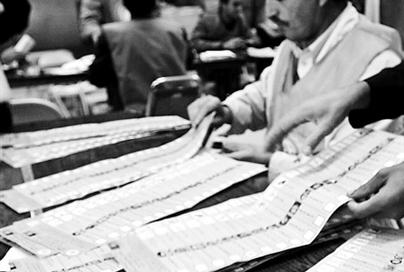
Tuesday, February 05, 2008 | Theo Caldwell, National Post
An interview with Iraq's ambassador to Canada
Howar Ziad, the Iraqi ambassador to Canada, has seen the best and the worst of humanity in his homeland. The courage of the Iraqi people, and in particular the emergence of the Kurdistan region from decades of genocide and devastation, represents the highest aspirations of the human spirit.

The brutality of the previous 35 years, meanwhile -- torture, mass killings, disappearances and chemical attacks -- is a legacy of man's inhumanity to man. Western politicians, journalists and intellectuals inveigh against the American campaign in Iraq but, having seen the changes in his country, ambassador Ziad shares none of their doubts.
In conversations with me last week, ambassador Ziad spoke of the progress Iraq is making, the yawning indifference this has aroused in the mainstream press and the gratitude of his people for the intervention of the United States and its allies.
When asked if, despite the absence of weapons of mass destruction, the persistence of the terrorist insurgency and the resulting death and instability, the campaign to topple Saddam Hussein was justified, Ziad's answer is categorical and emphatic: "Absolutely. To put this question to the average Iraqi is ridiculous and probably insulting. That regime enslaved people and caused genocide, wars and breached every single human right."
It is this history that makes the nascent success of a free Iraq so remarkable. "We have a democratically elected government," Ziad reports with pride. "We had three elections and, for the first time in the Islamic Middle East, we didn't know the result of the election beforehand."
With a federal budget of $48-billion, declining inflation rates and a newly merged currency that is steadily increasing in value, the economic picture of the new Iraq is brightening, too. Iraq's Kurdistan region, spared major terrorist attacks in recent years, is booming. Its annual development budget is a remarkable $5-billion, and in its capital of Erbil people are buying Western-style apartments in gated communities built around swimming pools. Tens of thousands of Iraqis have begun returning to their homes, thanks to the improved security situation.
Despite constant attempts by terrorists to disrupt production, Iraq's oil output is approaching three million barrels per day. With oil prices at historic highs, this upward trend is good news for Iraqi citizens. "In the past," Ziad points out, "oil revenue has gone to dictators like Saddam, with none of the benefit going to the people." As Christopher Hitchens noted during a trip to the region: "Everybody knows how to snigger when you mention Jeffersonian democracy and Iraq in the same breath; try sniggering when you meet someone who is trying to express these ideas in an atmosphere that only a few years ago was heavy with miasmic decay and the reek of poison gas."
To be sure, the terrorist threat within the country remains, although al-Qaeda haunts the nation as a ghost of its former self. Sectarian divides among Sunni, Shiite and Kurdish populations pose a challenge, but ambassador Ziad likes to point to Canada's example of devolved federalism to demonstrate how people of different cultures and regions can share a nation.
The analogy may seem far-fetched, since Canada's cultural fissures are nowhere near so recent and deadly as those in Iraq. Even so, Canadians can be grateful and proud that Iraqis see our system as an object of supreme aspiration.
Ambassador Ziad shares the belief held by many supporters of the Iraq campaign that, as the counterinsurgency strategy of U.S. General David Petraeus has yielded positive results, the elite news outlets that condemned the American invasion from the beginning have turned a blind eye. According to the Media Research Center, which has been tracking news coverage for over 20 years, the major American networks carried 178 news stories about the Iraq war in September, 2007. By November, by which time the situation had improved, that number had plummeted to 68. In a news culture where The New York Times put Abu Ghraib on its front page 32 days in a row, such a precipitous drop in concern for Iraq speaks volumes.
At times, reporters' obsession with finding bad news about Iraq can lead them beyond satire. Presumably with straight faces, the McClatchy news service lamented in October of 2007 that, "As violence falls in Iraq, cemetery workers feel the pinch."
But ambassador Ziad's ideals are higher than what one reads in the morning paper, and he knows that words are only that. "Regardless of what the media do," he says, "if we genuinely make progress, it really doesn't matter. We have faced many challenges: the terrorists, obviously, and many others who have vested interests -- they didn't want us to succeed. It's not easy to overcome the legacy of a genocidal, fascist regime, but so far we have made it. Economically, the average person is much better off than they used to be, and freedom has strength. It's not perfect. But step by step, we are moving forward, with the help of our friends, the United States."
Reflecting on the vicissitudes of Iraq's young liberty, he adds, "I prefer messy democracy to the stability of tyrants."
It is fashionable to dismiss the U.S.-led campaign in Iraq as a mistake, a failure or even a crime, and with such scorn comes easy agreement and approbation from sophisticates. But, for the people of Iraq, the unpopular truth is more compelling.
* Theo Caldwell is president of Caldwell Asset Management, Inc., and is an investment advisor in the United States and Canada.


